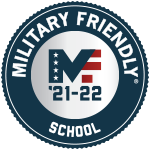Biohazardous Risk Reduction Training
To meet the needs of biotechnology companies and agencies locating near Manhattan, KS, Manhattan Tech has developed a Biohazardous Risk Reduction training course for Facilities Technicians of Critical Environments.
This training is aimed at the safety needs of Operations & Maintenance technicians, contractors and others who work in and around BSL2-4 laboratories or cleanrooms. It will provide the safety skills necessary to maintain specialized critical environments with the goal of minimizing worker exposure and company liability. The program will award Certificates of Completion to participants who pass the hands-on skills assessments.
The program offers:
- 3-day training sessions scheduled to meet industry needs
- Real-world skills assessment to be conducted within a functional BSL3
- City of Manhattan Code Services – 6 CEUs
- Knowledge of industry-specific guidelines, regulations, and standards
- Customizable curriculum and structure for regional industry
Training Topics
This unit defines levels of risk and laboratory safety, giving students a foundation to assess future environments. Most students will be experienced in HVAC/R and electronics but the wide variety of mechanical components necessary for critical environments and the safety skills needed is the next step on professional experience.
This unit will review students’ recently acquired risk assessment skills, and apply those assessment principles to critical environments. The goal is to give technicians an awareness of some of the unseen consequences of otherwise common technical decisions.
This unit will give technicians a basic scientific overview of the pathogenic microbes they may be exposed to. The goal is to help them develop healthy respect and minimal anxiety around these intrinsic factors in critical environments.
Critical environments rely heavily on balanced air systems, interlocking doors, and building controls to maintain separation and safety. While technicians are likely to be familiar with the broad outlines of these systems, specific requirements vary according to risk and safety level. This unit considers specific mechanical needs, referencing CDC, NIH and DRM standards and guidelines.
The focus of this unit is communicating the principles that help facility technicians keep themselves and the material within containments safe.
This unit will give technicians a basic overview of common methods of decontamination. Though they are not responsible for decontaminating laboratory suites, they should be aware of the benefits and consequences of each methods upon their work.
This unit reviews high risk scenarios and gives technicians sound principles of resolving emergency/critical/serious/unexpected incidents while staying safe and keeping the environment safe.



